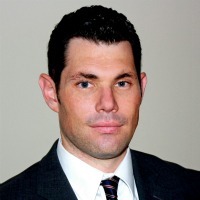Artificial Intelligence: Friendly or Frightening?
Rich Hua stashed this in Technology
Stashed in: Zuck!, Awesome, History of Tech!, Infographics!, Turing, Singularity!, Bots, @elonmusk, AI, The Singularity, @aplusk, Stephen Hawking
Bottom line: No one knows yet.
Reports of people worshipping mythological human likenesses and building humanoid automatons date back to the days of ancient Greece and Egypt, Perlis told Live Science. AI has also featured prominently in pop culture, from the sentient computer HAL 9000 in Stanley Kubrick's "2001: A Space Odyssey" to Arnold Schwarzenegger's robot character in "The Terminator" films. [A Brief History of Artificial Intelligence]
Since the field of AI was officially founded in the mid-1950s, people have been predicting the rise of conscious machines, Perlis said. Inventor and futurist Ray Kurzweil, recently hired to be a director of engineering at Google, refers to a point in time known as "the singularity," when machine intelligence exceeds human intelligence. Based on the exponential growth of technology according to Moore's Law (which states that computing processing power doubles approximately every two years), Kurzweil has predicted the singularity will occur by 2045.
But cycles of hype and disappointment — the so-called "winters of AI" — have characterized the history of artificial intelligence, as grandiose predictions failed to come to fruition. The University of Reading Turing test is just the latest example: Many scientists dismissed the Eugene Goostman performance as a parlor trick; they said the chatbot had gamed the system by assuming the persona of a teenager who spoke English as a foreign language. (In fact, many researchers now believe it's time to develop an updated Turing test.)
Nevertheless, a number of prominent science and technology experts have expressed worry that humanity is not doing enough to prepare for the rise of artificial general intelligence, if and when it does occur. Earlier this week, Hawking issued a dire warning about the threat of AI.
"The development of full artificial intelligence could spell the end of the human race," Hawking told the BBC, in response to a question about his new voice recognition system, which uses artificial intelligence to predict intended words. (Hawking has a form of the neurological disease amyotrophic lateral sclerosis, ALS or Lou Gehrig's disease, and communicates using specialized speech software.)
And Hawking isn't alone. Musk told an audience at MIT that AI is humanity's "biggest existential threat." He also once tweeted, "We need to be super careful with AI. Potentially more dangerous than nukes."
In March, Musk, Facebook CEO Mark Zuckerberg and actor Ashton Kutcher jointly invested $40 million in the company Vicarious FPC, which aims to create a working artificial brain. At the time, Musk told CNBC that he'd like to "keep an eye on what's going on with artificial intelligence," adding, "I think there's potentially a dangerous outcome there."












11:24 AM Dec 09 2014